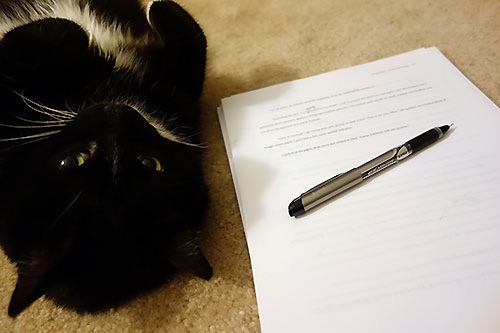I used to be in a book club that mostly switched between beach books and self-help stuff. Sometimes I enjoyed those once-a-month reads out of my comfort zone, and it’s always good to try new things. But after a year or so of searching for and buying those outlier books, Amazon started to think I was deeply into diet memoirs and contemporary melodramas set in Nantucket. Something had to be done.
After poking around in the site options, I figured out how to wrangle my suggestions back into shape. Here’s a guide for anyone else who’d like to try the same thing.
Nuke your Browsing History
My most off-kilter Amazon suggestions come from books I looked at but didn’t buy. These may have been recommendations from friends, links from book blogs, or search mistakes. There are plenty of reasons to look at book pages that don’t include “I love this book and want to see recommendations based around it,” and Amazon usually seems to recognize that. But over time, all that random browsing can skew what you’re seeing on the site.
Go to Amazon and make sure you’re logged in. Under the search bar, follow the link that says “Browsing History” and scroll down for awhile. If you spot anything you’re still interested in, you can add it to your cart or a wishlist. But ninety percent of that list will be books you don’t want or widgets you don’t need.
Back near the top of the page there’s a “Manage History” link, and when you click that, it gives you a button to “Remove All Items.” Using that button a couple of times a year has drastically improved my Amazon experience. The site will still show you plenty of recommendations, they’ll just be based on things you’ve actually bought. And if you like that fresh-slate feeling but don’t want to have to remember to clear your history, that same menu has an option to turn off the browsing history feature on your account.
Tweak your recommendations.
Once you’ve taken care of your browsing history, it’s time to tackle Amazon’s other big source of suggestions: your purchase history and other activity on the site.
Hover over the “Account & Lists” menu beneath your name, select “Your Recommendations” and then follow the “Improve Your Recommendations” link near the top of that page. This shows your purchase history, which will let you rate items you’ve bought, mark purchases as a gift, or tell Amazon not to use that item for recommendations.
If you’ve been using Amazon for awhile, there’s no need to go through your entire list. The site seems to recommend more heavily based on recent purchases than long-ago ones, and the things you actually bought are going to be less random than your browsing history was.
I usually go back 5-6 months and tell Amazon not to recommend to me based on book club buys, gifts for friends, and some of my free kindle downloads. I also rate the books I liked the most, which gives the site a better idea of what I might be interested in.
Look over the results.
After you’re finished poking around in your purchase history, near the top of the page there’s a link to your “Recommended For You” page. Going through the previous steps should have helped fill this page with more things you’d actually like to read.
If you spot recommendations that are really off, you can tell the site that you’re not interested in the listed item. You can also click “fix this” to get straight at the reason that it’s being suggested. If you’re seeing a lot of things pop up that you’ve bought elsewhere (or borrowed from the library), then click “I own it” and rate the book.
It doesn’t take that long to wrangle your suggestions back into shape, especially if you remember to check your suggestions list every few months. Still, I’m happy that my current book club has more eclectic taste…
 “God save the King!”
“God save the King!”

